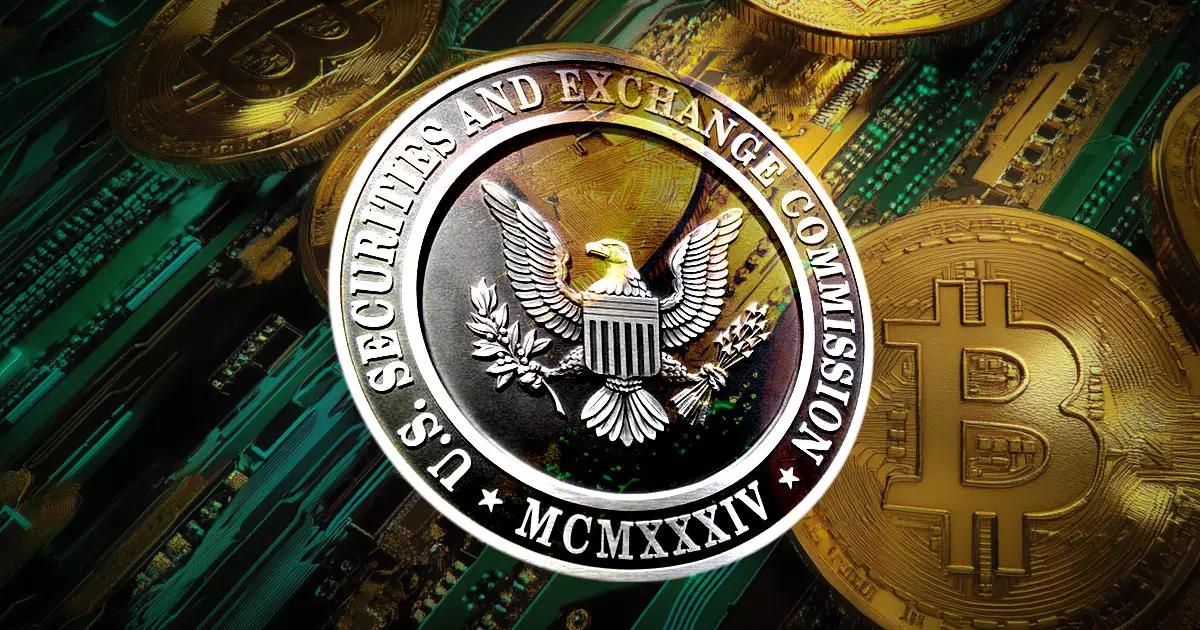In a striking move that signals both seriousness and scrutiny, the US Securities and Exchange Commission (SEC) recently convened with notable giants of finance and innovation: BlackRock and the Crypto Council for Innovation’s Proof of Stake Alliance. These meetings are not merely casual chats over coffee; they represent a pivotal moment in the unfolding saga of cryptocurrency regulation. By engaging with heavyweights like BlackRock, the SEC acknowledges the growing importance of crypto exchange-traded products (ETPs) in the financial landscape. It’s a curious marriage of traditional financial institutions and cutting-edge technology, yet the dynamics could catalyze substantial changes in the regulatory framework governing these digital assets.
A New Era of In-Kind Redemptions?
BlackRock’s discussions focused on the concept of in-kind redemptions specific to crypto ETPs, positing an innovative approach that could alter how these products function. In-kind redemptions allow investors to exchange shares for the underlying assets—essentially pulling crypto out of the fund without needing to liquidate it. This practice, which has long been a mainstay in traditional ETFs, raises essential questions about how it could be adapted to the volatile nature of cryptocurrencies. The implications of allowing in-kind redemptions for crypto-based funds could revolutionize investor access, providing a liquidity mechanism that enhances trust and stability in an otherwise chaotic market.
Staking: The Unseen Player
The complexity does not end there. With the Proof of Stake Alliance in the mix, the discussion about staking has emerged as a crucial point. Staking is the backbone of many proof-of-stake blockchains, such as Ethereum and Solana, allowing crypto holders to earn rewards by participating in network validation. Engaging the SEC in discussions about the different types of staking—be it custodial, delegated, or liquid—indicates that industry leaders recognize the importance of these mechanisms. They aim to ensure that any regulatory framework accommodates the nuances of these models while also providing clarity to investors. If historical trends are any indicator, the acceptance of staking principles may not only validate these financial products but also attract a broader range of investors.
The Potential for Enhanced Returns
The voices from companies like Jito Labs and Multicoin Capital emphasize that omitting staking from ETPs could fundamentally undermine the efficacy of these products. In an era where every basis point counts, excluding staking could deprive investors of valuable returns. Their advocacy for integrating staking into ETPs is not just a matter of regulatory compliance; it’s a matter of enhancing the functional utility of proof-of-stake assets. Traditional finance has often underestimated the potential of crypto to generate returns, but these innovative minds make a compelling case that marrying ETPs with staking could elevate the entire financial product.
The SEC’s Course of Action
The SEC’s interactions hint at a willingness to engage with the complex technical and legal frameworks surrounding crypto ETPs. However, it is essential to recognize the balancing act regulators face: fostering innovation while safeguarding investors. The meetings, including those prior to the current ones, showcase a long-term commitment to navigating this terrain thoughtfully. Each collaborative discussion carves a pathway toward regulatory clarity, but it also raises the stakes for how quickly those decisions are implemented. Speed is vital in the crypto world; regulatory delays could result in missed opportunities for capitalizing on the burgeoning institutional interest in cryptocurrencies.
While it is too early to predict the regulatory outcomes of these high-stakes meetings, one aspect remains crystal clear: the SEC’s engagement with influential financial institutions signals a paradigm shift in how cryptocurrency and traditional finance intersect. The complexity of in-kind redemptions and the nuanced proposals around staking could act as catalysts, steering the regulatory narrative toward a more favorable environment for crypto ETPs. In the grand scheme, establishing a robust legal and operational framework may very well influence the trajectory of not just crypto investment but also the global financial ecosystem in the years to come. We stand on the precipice of change, and the decisions made in these meetings could ripple across markets and regulatory landscapes alike.















